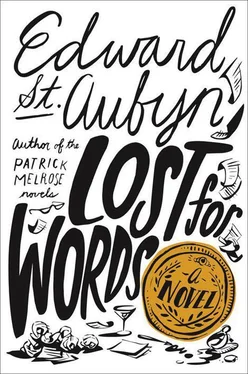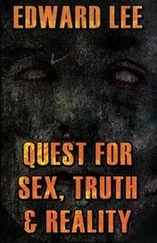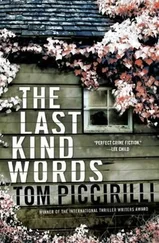Edward St. Aubyn
Lost for Words
When that Cold War relic Sir David Hampshire had approached him about becoming Chair of the Elysian Prize committee, Malcolm Craig asked for twenty-four hours to consider the offer. He had a visceral dislike of Hampshire, the epitome of a public-school mandarin, who had still been Permanent Secretary at the Foreign Office when Malcolm was a new Member of Parliament. After he retired, Hampshire took on the usual bushel of non-executive directorships that were handed out to people of his kind, including a position on the board of the Elysian Group, where he had somehow fallen into the role of selecting the committees for their literary prize. His breadth of experience and range of contacts were always cited as the justification, but the truth was that David liked power of any sort; the power of influence, the power of money and the power of patronage.
Malcolm’s doubts were not confined to Hampshire. Elysian was a highly innovative but controversial agricultural company. It numbered among its products some of the world’s most radical herbicides and pesticides, and was a leader in the field of genetically modified crops, crossing wheat with Arctic cod to make it frost resistant, or lemons with bullet ants to give them extra zest. Their Giraffe carrots had been a great help to the busy housewife, freeing her to peel a single carrot for Sunday lunch instead of a whole bunch or bag.
Nevertheless, environmentalists had attacked one Elysian product after another, claiming that it caused cancer, disrupted the food chain, destroyed bee populations, or turned cattle into cannibals. As the noose of British, European and American legislation closed around it, the company had to face the challenge of finding new markets in the less hysterically regulated countries of Africa, Asia and Latin America. That was where the Foreign Office, liaising with Trade and Industry, had stepped in with their combined expertise in exports and diplomacy. The latter had come very much to the fore after some regrettable suicides among Indian farmers, whose crops had failed when they were sold Cod wheat, designed to withstand the icy rigours of Canada and Norway rather than the glowing anvil of the Indian Plain. Although the company disclaimed any responsibility, an unusually generous consignment of Salamander wheat proved such a success that Elysian was able to use a shot of the gratefully waving villagers, their colourful clothing pressed to their elegantly thin bodies by the billows of a departing helicopter, in one of its advertising campaigns.
Elysian’s weaponized agricultural agents had come to Malcolm’s attention when he was asked to sit on the Government committee responsible for the ‘ Checkout List’. Aerially dispersed, Checkout caused any vegetation on the ground to burst immediately into flame, forcing enemy soldiers into open country where they could be destroyed by more conventional means. Debates about the Checkout List had of course remained secret, and from the general public’s point of view, Elysian’s name continued to be associated almost entirely with its literary prize.
In the end it was backbench boredom that persuaded Malcolm to accept the chairmanship of the prize committee. An obscure opposition MP needed plenty of extra-curricular activities to secure a decent amount of public attention. Who knew what opportunities his new role might bring? His moment in the pallid Caledonian sun as Under-Secretary of State for Scotland had been the climax of his career so far, as well, he hoped, as the climax of his self-sabotage. He had lost the job by making a reckless speech about Scottish independence that ran directly contrary to his party’s official policy and ensured that he would have to resign. He hoped he might one day return to his old job, but for the moment it was time to put away affairs of state and take up childish things, to look through a glass darkly — over a long lunch. When he rang Hampshire to tell him the happy news, he couldn’t resist asking why the prize was confined to the Imperial ash heap of the Commonwealth.
‘Those are the terms of the endowment,’ said Hampshire drily. ‘On the wider question of why an institution as vacuous and incoherent as the Commonwealth continues to exist, my answer is this: it gives the Queen some pleasure and that is reason enough to keep it.’
‘Well, that’s good enough for me,’ said Malcolm, waiting tactfully until he had hung up the phone to add, ‘you silly old twat.’
Broadly speaking, he did not regret his decision. His secretary was busier than she had been for a good while, collecting newspaper clippings and recordings of radio interviews. Malcolm noticed an increase in the ripple effect of his presence in the Commons bar, and an added liveliness to his conversations at dinner parties. The only aggravating aspect of the process was Hampshire’s refusal to consult him about the other members of the committee.
As a well-known columnist and media personality, Jo Cross, the first to be appointed, made sense by raising the public profile of the prize. She turned out to be a veritable geyser of opinions, but once Malcolm managed to make her focus, it turned out that her ruling passion was ‘relevance’.
‘The question I’ll be asking myself as I read a book,’ she explained, ‘is “just how relevant is this to my readers?”’
‘Your readers?’ said Malcolm.
‘Yes, they’re the people I understand, and feel fiercely loyal to. I suppose you would call them my constituents.’
‘Thanks for putting that in terms I can easily grasp,’ said Malcolm, without showing the patronizing bitch the slightest sign of irony.
The presence of an Oxbridge academic, in the form of Vanessa Shaw, the second recruit, was probably unavoidable. In the last analysis, Malcolm felt there was no harm in having one expert on the history of literature, if it reassured the public. When he invited her to the Commons for tea, she kept saying that she was interested in ‘good writing’.
‘I’m sure we’re all interested in good writing,’ said Malcolm, ‘but do you have any special interest?’
‘Especially good writing,’ said Vanessa stubbornly.
The committee member Malcolm most resented was one of Hampshire’s old girlfriends from the Foreign Office, Penny Feathers. She had neither celebrity nor a distinguished public career to recommend her, and a little Googling soon established the emptiness of Hampshire’s claim that she was a ‘first-class’ author in her own right. Malcolm couldn’t look at her without thinking, ‘What in God’s name are you doing on my committee?’ He had to remind himself that she had one of five votes and his mission was to make sure that her vote went his way.
The final appointee was an actor Malcolm had never heard of. Tobias Benedict was a godson of Hampshire’s who had been ‘a fanatical reader ever since he was a little boy’. He missed the first two meetings, due to rehearsals, but sent an effusive apology on a handwritten card, saying that he was there ‘in spirit if not in the flesh’, that he was reading ‘like a madman’, and that he was ‘in love with’ All the World’s a Stage , a novel Malcolm had not got round to yet. The truth was that he had no intention of reading more than a small proportion of the two hundred novels originally submitted to the committee. His role was to inspire, to guide, to collate and above all, to delegate. In this case, he asked Penny Feathers to look into Tobias’s choice, feeling that one lame duck should investigate another.
He asked his secretary to skim through the early submissions looking for his own special interest, anything with a Scottish flavour. She had come up with three novels of which he had so far only had time to look at one. A harsh but ultimately uplifting account of life on a Glasgow housing estate, wot u starin at really hit the spot when it came to new voices, the real concerns of ordinary people, and the dark underbelly of the Welfare State. He intended to lend it his support and start a discreet campaign on its behalf. He was also pleased, for personal reasons, that she had unearthed The Greasy Pole , a novel by Alistair Mackintosh, but he must be careful not to support it too overtly.
Читать дальше












